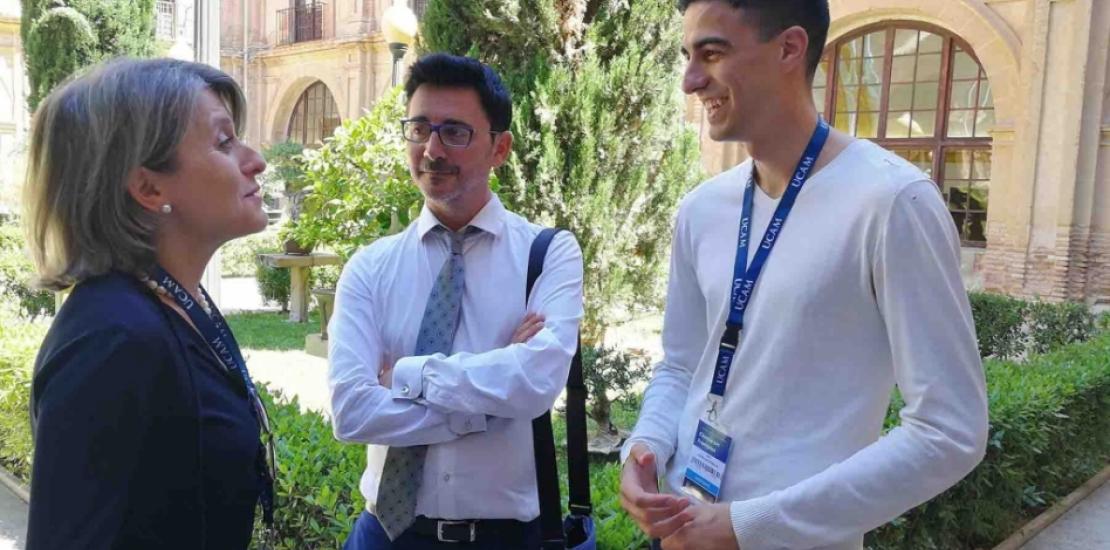Joel González: “We have the tools to detain rigging in the matches”
The Spanish Taekwondo player presented at UCAM progress in the investigation to detect frauds and combat them in the most efficient way, which is the objective of the doctoral thesis that the Catholic University of Murcia is doing
The double Olympian medalist Joel González participated today in the Investigation and Doctorate ‘Science without Borders’ Workshop organised by the Catholic University of Murcia. During the investigation of his doctorate thesis, Joel presented a poster on his investigation called 'The sports bets can be a key indicator for the detection of rigging of a match'.
The cornerstone of his work is the information from the sports bets to detect a possible rigging: “The biggest clue is the fluctuation of money. One of the most important pillars is to determine if there has been rigging or not in the match, and it comes determined by the sporting bets. If a match has a previous value estimation of between 5000 and 7000 euros, and there are 20.000 euros on bet, the alarm goes off. From there on, the match should be visualized to be able to determine if the suspicious actions are confirmed. In one on one sports, it’s more difficult to detect, but in matches like football with eleven against eleven it’s more noticeable, because the errors are forced, and not everything depends on you. Sport bets are very important, because with them we have concrete proof on that a criminal offence might be taking place”.

To combat this crime, it’s important to count on instant information and the collaboration between the betting offices, that “have an especific risk department. They have a business and, if there are rigged matches, they are the first ones to lose money and therefore they want to get involved in this problem and tackle it. The laws should take into account, that you can bet from Spain on internet through a betting office in another country for a match that’s held in another country, and that’s three countries involved. This is what’s happening, and this legal loophole might be taken advantage of by many people”.
The case, that exploded in Spain this week, which according to the known facts, had the classical plot: “In many of the cases they are small mobs, because they can’t go and bet a million euros in one match. One bets 200, another 500, someone calls someone abroad to also make a bet… There’s a continuum to avoid being noticed a lot. It’s like you arrive to a bank with one million euros, where the normal is that they ask where the money came from. They play with this. They bet little by little, with some, but not a lot, of money. The problem is that after all money leaves a trace and it can be verified is everything is a result of a rigging in a match. In this case that blew up in Spain they are investigating if there really is a money trace, and more so, if there is a payment for these actions”.
With his doctoral thesis, Joel González wants to show how to stop or to minimize rigging in matches: “It has always been very covered, but we noticed that we possess the sufficient tools to see the corruption and stop the rigging”.




